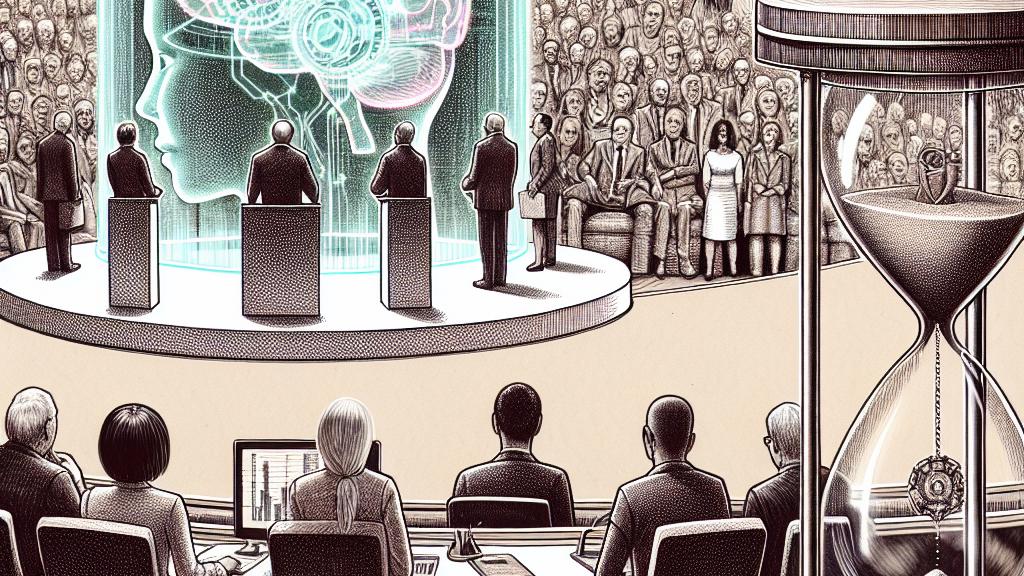Understanding the Effects of AI on Jobs and Equality
Overview
- The expansion of AI technology threatens to widen gender pay gaps, especially in clerical jobs heavily occupied by women.
- Though AI may eliminate certain positions, it simultaneously opens doors to exciting new career paths.
- Addressing job quality and ensuring equitable wages remain critical challenges in this evolving landscape.

Introduction: A New Era of AI
In Paris, leaders from across the globe are convening for an important summit, focusing on the far-reaching impact of artificial intelligence (AI) on society. Exciting yet concerning, this technology is transforming the job market, particularly in clerical sectors where many women work. Gilbert Houngbo, the head of the International Labour Organization, highlighted this alarming trend, noting that while AI could enhance productivity, it also threatens to widen existing gender pay disparities. This makes it essential for us to recognize how swiftly jobs can be replaced, particularly those vital to women’s economic stability.
The Job Market Shift: Losses and Gains
The unsettling perception that AI will lead to massive job losses is prevalent today. However, Houngbo presents a more nuanced view, indicating that while the landscape will change—with many jobs vanishing—countless new roles are anticipated to emerge. Think about areas like data science, software development, and AI maintenance, which are projected to flourish. Yet, we must tread carefully! These new opportunities might come with lower wages and fewer protections, much like the precarious gig economy positions many people fill today. Thus, understanding the dual-edged nature of these changes is crucial.
Ensuring Fairness in the AI Economy
As we step into a future dominated by AI, an urgent question looms: how do we guarantee that the new jobs created are both fair and secure? At the Paris summit, ambitious plans took center stage, such as France’s impressive commitment of €109 billion to foster AI development. But remember, nurturing such innovation alone won’t cut it. It requires a concerted effort from politicians, tech leaders, and civil organizations to forge pathways that ensure everyone can access these opportunities. It's not just about creating jobs; it's about creating jobs that empower individuals—especially vulnerable populations—by offering fair compensation and solid protections.
A Collective Vision: Shape the Future with Intent
At its core, this conversation is not just about technology; it's fundamentally about the future we collectively shape. Here lies an incredible opportunity: to ensure AI serves as a tool for inclusion rather than exclusion. After all, we have a chance to cultivate a global movement where job creation aligns with fairness and equality, providing opportunities that uplift all communities. Let us not merely track the changes in job statistics; instead, let us fervently champion a vision where AI not only catalyzes innovation but also fosters a more equitable world for everyone, particularly those who have been historically marginalized.

Loading...